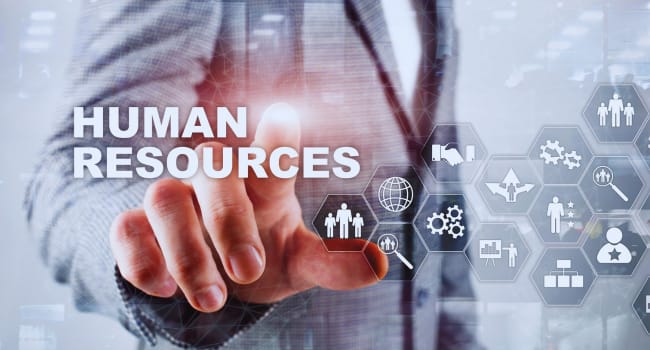HR innovations that defined 2024

In 2024, the world of work was changing rapidly. Competition for top talent was fierce, and companies needed to rethink how they attracted and retained the best employees. This led to a wave of exciting new approaches, from AI helping us find the perfect candidates to a stronger focus on making sure our employees were happy and healthy.
HR teams embraced cutting-edge tools like predictive analytics to anticipate future needs, microlearning platforms that made learning both fun and engaging, and intuitive dashboards that provided a clear view of the workforce. The goal wasn’t just about hiring the best talent, but creating a workplace where everyone could thrive. HR aimed to build teams that were not only strong and resilient but also inclusive.
Let’s take a look at some of the top HR innovations of 2024.
AI-based hiring and selection tools
HR departments can get a lot of details about prospective candidates without involving many staffs and incurring exorbitant costs through Artificial Learning (AI) and Machine Learning (ML), which have revolutionised how these HR departments attract, identify, and rope in top talents.
AI reduces the time required for hiring by automating the entire screening process of resumes and helps recruiters in engaging candidates. ML algorithms are more accurate in predicting candidates’ suitability though complex datasets analysis.
Moreover, AI tools minimise biases by focusing on candidates’ experience and competencies as these tools take data-driven decisions. These processes help in selecting qualified candidates from diverse backgrounds, not possible when done through conventional HR processes.
Digital Onboarding 2.0
Digital onboarding solutions have evolved, offering a more seamless and efficient process for both employers and new hires. Modern systems, like SAP SuccessFactors Onboarding 2.0, integrate with third-party solutions, simplifying the onboarding experience. These platforms reduce administrative tasks by eliminating the need for multiple configurations, cutting down on maintenance work and associated costs. With a focus on automation, they help accelerate the signup process, improve compliance, and reduce expenses related to printing, storage, and transportation of documents.
Chatbots & virtual assistants for HR help
Beyond AI-powered hiring, chatbots and virtual assistants are transforming the way HR departments interact with employees. These digital assistants can automate a variety of tasks, freeing up HR professionals to focus on more strategic initiatives. Chatbots can handle routine tasks like scheduling interviews, managing leave requests, and answering frequently asked questions. This allows HR staff to dedicate their time to more complex issues and employee relations. Virtual assistants can provide instant support and information to employees, resolving issues quickly and efficiently. This can significantly improve employee satisfaction and engagement. Chatbots can collect and analyze data based on employee interactions, providing valuable insights into employee sentiment, performance, and overall HR effectiveness. This data can be used to identify areas for improvement and make data-driven decisions.
Mental health and wellness innovation
Paying attention to improve the mental health condition of employees was a popular HR trend in 2024. Many HR leaders agreed that the most important thing for them is to make sure their employees have sound mental health. HR personnel use various tools to support their physical and mental well-being that helps businesses come up with health programmes. These tools often work with HR systems and benefit management platforms. They also offer mindfulness exercises that reduce stress. Besides, there are fitness trackers that encourage physical activity challenges among employees, promoting overall wellness.
Gamification in training and development
HR innovation is not always about work but sometimes about play. Incorporating game-like components in work culture make a difference in training and development. Gamified learning has always ensured higher level of engagement for employees as it has both fun as well as educations elements. Gamified learning involves interactive sessions that promote problem-solving skills in real-world situations. Instant feedback encourages continuous improvement. HR innovation uses gamification as a tool to change routine training programmes into dynamic ones to boost knowledge retention rates.
Data-driven HR analytics
Data-driven HR analytics can help HR departments and companies improve employee engagement, retention, boost their productivity, make better strategic decisions, identify business requirements long before time, and save costs. Descriptive analytics is the basic type of HR analytics, while predictive analytics uses data models and simulations to predict work trends. Similarly, performance management involves collecting and analysing data on employee performance to improve outcomes. Some common data sources for HR analytics are recruitment data and information about selection.
The Rise of Skills-Based Hiring
In 2024, the focus shifted from traditional job titles to individual skills and competencies. Organizations began to prioritize skills-based data, including employee skills inventories, assessment results, and performance reviews. This shift towards skills-based data enabled organizations to better identify and develop internal talent, improve workforce planning, and make more informed hiring decisions. By focusing on skills development, organizations empowered their employees to build in-demand skills and advance their careers.
Creating a positive workplace experience
To help companies retain employees, increase productivity, and improve overall business performance, companies use such software or digital tools. These tools are used to make employees feel valued and important, while also making note of their concerns and ideas. The tools are used to improve communication, register feedback, track their performance, set goals, and analytics. These workplace experience tools gather data on employee trends and help in taking future HR initiatives and improve organisational standards. Employees surveys, real-time feedback, 360-degree feedback, recognition tools, employee rewards, and software integrations are some of the HR innovations that have defined the year 2024.
Skills-based data
In HR innovation 2024, skills-based data is based on details gathered from an individual's skills and competencies, such as skill lists, assessment results, and experience details. Skill-based data needs to be updated on regular basis to remain relevant. Such data can be used in talent management, hiring, and for deciding salary.
When companies are supported by tangible skill-building resources along with encouragement to question norms, you will witness the emergence of innovative human resources practices like never before.


